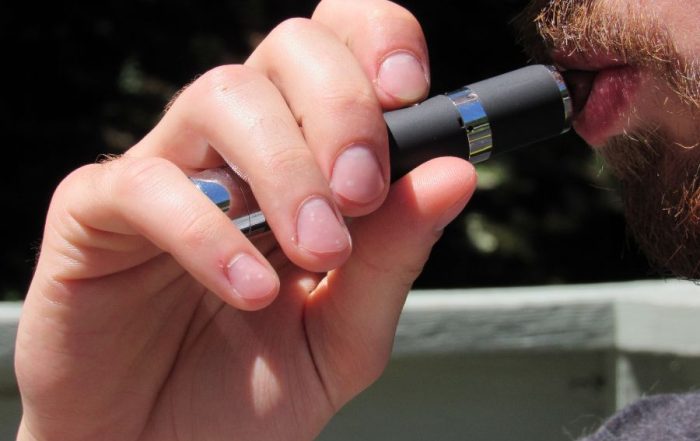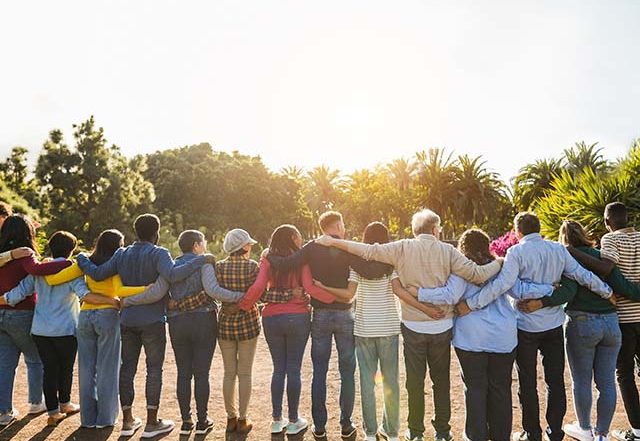What Is Enthusiastic Sobriety?
Enthusiastic sobriety is an approach to treat substance use disorders in teens and young adults. This approach is based on the belief that in order for substance abuse treatment to be effective for young people, it must be fun and feel good. Substance use disorders are serious problems affecting thousands of young people and families across the country. This problem has been increasing for decades. By utilizing enthusiastic sobriety as its treatment philosophy, Insight provides a 12 step program for youth that reaches them where they live.
Why “Enthusiastic?”
Though there are many reasons that young people cite for why they do drugs, anonymous surveys of youth show that the most common reason is to have a good time. Of course, some young people who try drugs develop substance use disorders as a result.
Once a substance use disorder develops, young people use and drink to the point of obsession. The young person often surrounds themselves with drug using peers, listens to pro-drug music, and consumes pro-drug media. This presents a huge problem for young people who sober up. When a teenager stops using alcohol and drugs, there is a tremendous void left in their lives.
The young person who abuses drugs and alcohol uses in a way that affects them socially, physically, emotionally and spiritually. Recovery must be able to meet the young person’s needs on all these levels. Most importantly, the solution has to be fun and feel good.
This is the reason for the moniker, “enthusiastic sobriety.” The word enthusiasm comes from the Greek word enthousiasmos, which means “divine inspiration” or “to be inspired.” In other words, this approach aims to help replace those components of a young person’s life that is lost when they sober up: friendships, hobbies, things to look forward to, and much more.
The problem with traditional approaches to sobriety in young people
The traditional twelve step approach is designed to help an individual abstain from alcohol and drugs by providing emotional coping tools through spiritual principles. It can be an amazingly effective approach in adults, but young people often have trouble grasping the concepts in the 12 steps.
For example, the first step of Alcoholics Anonymous reads, “we admitted we were powerless over alcohol – that our lives had become unmanageable.” Whereas an adult who has lost everything may identify with these words very quickly, teenagers and young adults may not have experienced very many (or any) adverse effects from drug or alcohol abuse.
This is the crux of it – in the young drug abuser’s mind getting high is still fun. The teen addict or drug abuser usually doesn’t believe it is them who has a problem. They typically identify their parents, their school, their society, or the police as their main problem.
Parents of drug abusing young people have heard it a thousand times, “If everyone would just leave me alone, I’d be fine.” This line of thinking is extremely common with young people.
This is the exact reason for enthusiastic sobriety to exist – it’s a philosophy of sobriety that focuses more on the fun and attractive elements of life without drugs, rather than focusing on the fear of consequences.
Our decades-long experience working with young people shows that if a young person in recovery enjoys the recovery experience the chances of long time sobriety are greatly increased.
Young people thrive in passionate environments. Effective drug and alcohol treatment programs for teens and young adults should be able to provide valuable instruction along with a gratifying experience. Enthusiastic Sobriety aims to produce this result.
Elements of an enthusiastic sobriety program
Enthusiastic sobriety is composed of several moving parts: the treatment program, the peer support group, and the parent support group.
The substance abuse treatment program
During the treatment process, the hope is that each teenager or young adult begins to grasp and apply the first four steps of the twelve steps to recovery. This includes recognizing areas of personal unmanageability, identifying the need for internal and external changes, seeking the help of positive influences in daily decision making, and beginning to develop and utilize spiritual concepts.
The peer support group
The peer support group is a 12 step program for teens and young adults. It consists of young people currently undergoing treatment and those who have completed treatment and are striving for continued application of those emotional coping skills and spiritual tools while working on their own individual life goals.
The peer support group meets formally at least four times weekly; twice during the week for twelve step meetings and twice on the weekend for sober social events. Over time, youth in the treatment program develop positive, meaningful relationships with one another, find positive influences in their support group peers and come to see the twelve step meetings and sober social functions as complementary events in the quest for meeting their own needs and having a life that is fun and feels good.
The aim is for the meetings and social functions, which are required as part of the treatment process, to become something that young people look forward to attending and participating in. More than anything, these events are facilitated so there is a fun and attractive alternative to alcohol and drugs.
Young people generally participate in the peer support group for up to two and a half years. During this time, they have the opportunity to develop a foundation of positive peers backing them as they pursue their educational and vocational goals. They also have the opportunity to give back to newcomers to the program, which often leads to improved self-esteem, sense of purpose, selflessness and gratitude.
The parent support group
Family support and recovery is essential to a young person’s recovery! For that reason, enthusiastic sobriety programs encourage all parents or caregivers to attend parent support group meetings once a week. The young person’s drug use and destructive behavior has affected the whole family.
The parent support group provides each parent the opportunity to process their own fear, anger, guilt, etc. via the 12 step program, all the while refraining from enabling or attempting to control their young person. It’s really hard to feel comfortable allowing someone who’s been consistently making poor choices to begin to own their life! It’s also tough to respond to the inevitable ups and downs of the addiction treatment and recovery process.
In any given parent meeting, there’s guaranteed to be the parent whose child has just begun to experience consequences from drug use all the way up to the parent whose child has experienced every nightmare drug and alcohol addiction has to offer. The hope is that each parent can find someone in whom they can confide and relate to whether the road to recovery is smooth or rocky.
There are also several social functions throughout the year where parents and/ or siblings are encouraged to attend. I’ve heard several families comment that these events have been some of the first times they’ve had fun together in years.
Why would someone choose enthusiastic sobriety?
As drug and alcohol counseling professionals who work with young people and their families, we often say that there are no guarantees when it comes to the treatment process. That being said, enthusiastic sobriety has a long track record of meeting teenagers and young adults where they are and helping them move forward from an addiction or substance use disorder.
Families who find success in enthusiastic sobriety programs often feel that they’ve tried everything – counseling, wilderness programs, church programs, various parenting techniques, and even other support groups. All of these approaches are valid and good things to try, but
Families that are a good fit for enthusiastic sobriety programs are those who have a 13-26 year old drug user and who are willing to commit to a whole family-centered approach to solving the problem.
If you have any questions about this approach or would like to simply discuss your situation, please feel free to reach out to us. We are always available to answer questions or help families develop a plan of action.







